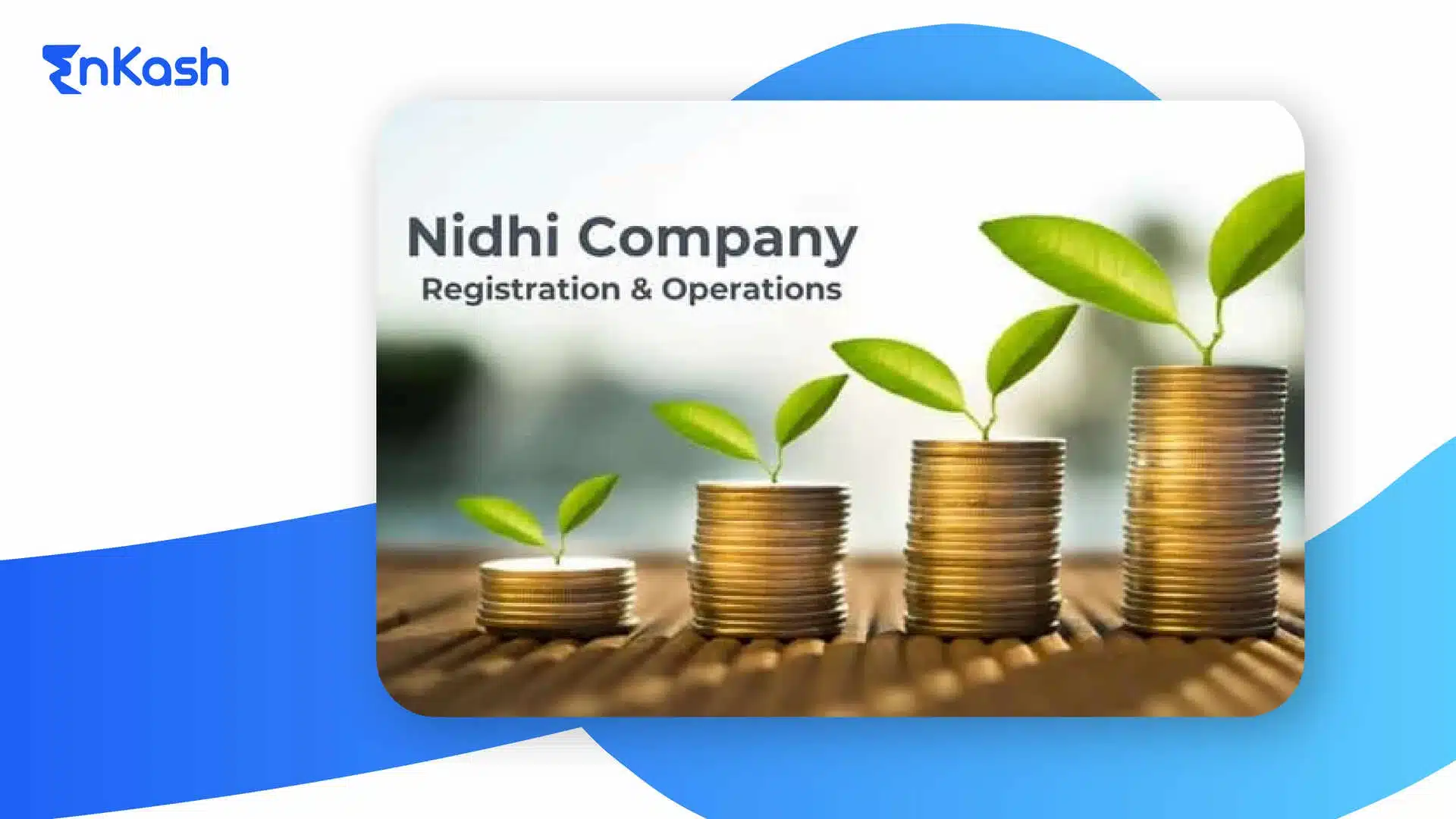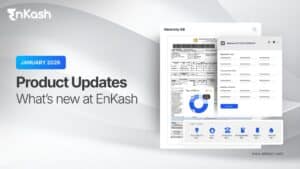What is Nidhi Company?
A Nidhi Company is a kind of financial institution formed to encourage savings and mutual benefit among its members. It works on the simple idea that people can pool their money together and lend within the same group when needed. The entire model is based on trust, transparency, and community participation.
In legal terms, a Nidhi Company is registered as a public company under the Companies Act, 2013. It operates under the Nidhi Rules, 2014, framed under Section 406 of the Companies Act, 2013, by the Ministry of Corporate Affairs. The company must include the word Nidhi Limited in its name to make its nature clear. These companies are unique because they deal only with their members. They accept deposits and provide loans only to those who hold membership in the company.
A Nidhi company’s meaning lies in its purpose. It aims to build a habit of saving and responsible lending within a close network of people. Every member contributes through small deposits, which are then used to give loans to others in the same group. This way, members benefit from fair interest rates and simple loan terms.
A Nidhi Company is sometimes compared with a bank, but there is a clear difference. It cannot issue cheques, create demand drafts, or deal with non-members. Unlike banks, it does not come under the direct control of the Reserve Bank of India. Instead, it is governed by the Ministry of Corporate Affairs, which ensures that these companies follow proper rules and maintain their financial discipline.
In simple words, a Nidhi Company is a mutual benefit organization that helps its members save regularly and access loans easily without heavy documentation. It offers members a safe and cooperative way to manage their financial needs. Over the years, such companies have played a steady role in improving small-scale financial inclusion and building local financial stability.
Features of Nidhi Company
A Nidhi Company operates on a simple structure. Its focus is to help members save and borrow within a small, trusted circle. These companies follow specific features that make them different from banks and other financial entities.
1. Member-Based Operation
Only members can deposit or borrow money. Every transaction stays within the group, creating a sense of mutual trust. This internal structure reduces risk and keeps operations transparent.
2. Limited to Mutual Benefit
The main goal is to support financial growth among members. The company cannot do business with outsiders or offer services to the general public. This rule ensures that funds circulate within the same community.
3. Recognition as Public Company
A Nidhi Company must be registered as a public limited company and carry “Nidhi Limited” in its name. This makes its nature and function clear to everyone involved.
4. Acceptance of Deposits
Members can make different kinds of deposits such as fixed, recurring, or savings deposits. The money collected is used for lending to other members, promoting collective financial balance.
5. Lending Only to Members
Loans are offered only to members and are typically secured against assets such as property, gold, or fixed depositsThe first step is digital. This keeps lending safer and avoids default risks.
6. Regulated by Ministry of Corporate Affairs
Unlike banks, Nidhi Companies are regulated by the Ministry of Corporate Affairs under the Nidhi Rules, 2014. They do not need approval from the Reserve Bank of India.
7. Capital and Ratio Requirements
A Nidhi Company must maintain specific financial standards, such as minimum paid-up equity capital and a ratio of net owned funds to deposits (1:20). These limits ensure stability and prevent misuse of funds.
8. Restriction on Other Businesses
They cannot engage in activities like chit funds, insurance, hire purchase, or investments in securities. Their role remains limited to deposit and lending services among members.
9. Simple Management Structure
A typical Nidhi Company has at least three directors and seven members at the time of registration. Over time, it must increase membership to two hundred within a year of starting operations.
10. Focus on Savings Habit
The company’s core objective is to build a habit of saving among people. Encouraging regular deposits and responsible borrowing helps members become financially independent over time.
Nidhi Company Registration Process
Starting a Nidhi Company requires following a specific process laid down by the Ministry of Corporate Affairs. Every step has its own rule, and missing even one can lead to rejection or delay. Let’s understand how the registration actually works.
What are the basic eligibility conditions for registration?
Before applying, the promoters must ensure that the company meets the eligibility norms under the Companies Act, 2013, and the Nidhi Rules, 2014.
- The company must have at least seven members and three directors at the time of incorporation.
- It should be registered as a public limited company and must include “Nidhi Limited” in its name.
- The minimum paid-up share capital should be ten lakhs rupees.
- The business objective must clearly state that the company is formed to promote savings among members and provide lending facilities within the group.
These are non-negotiable conditions that define the foundation of a Nidhi Company.
How to begin the registration process?
The first step is to obtain digital credentials. The directors must obtain a Digital Signature Certificate (DSC) to sign electronic forms and a Director Identification Number (DIN) to register their identity. After that, they can move on to choosing a name for the company.
The proposed name must be checked and approved through the RUN (Reserve Unique Name) or SPICe+ service on the MCA portal. The name should not be similar to any existing company or trademark. Once approved, the process moves to documentation and filing.
What documents are needed for Nidhi Company registration?
For a valid application, several documents are required:
- PAN cards and address proofs of all directors and members
- Proof of registered office (rent agreement, utility bill, or ownership papers)
- Memorandum of Association (MOA) and Articles of Association (AOA)
- Passport-size photographs of directors
- Declaration forms and consent letters for appointment
These documents must be submitted in the prescribed format through the MCA’s online portal.
How to file for incorporation?
After gathering the documents, the incorporation application is filed using the SPICe+ form on the MCA website. This form allows applicants to handle multiple services at once: company incorporation, PAN, TAN, GSTIN, and EPFO registration.
Once the form is filled out and digitally signed, it is submitted along with the required fees. The Registrar of Companies reviews the submission and, if everything is correct, issues a Certificate of Incorporation.
What happens after incorporation?
After the company is formed, it must apply for recognition as a Nidhi Company by filing Form NDH-4 within 120 days. This step is mandatory. The declaration is approved only if the company meets the following post-incorporation conditions:
- It has at least 200 members within one year of incorporation.
- It maintains a net owned fund of ten lakh rupees or more.
- The ratio of net owned funds to deposits does not exceed 1:20.
Once the declaration is accepted, the company officially gains its status as a Nidhi Company.
How much time and cost does registration take?
The entire registration process usually takes between 30 to 45 working days, depending on document accuracy and verification speed. The overall cost may vary based on professional fees and government charges, but remains moderate compared to other financial institutions.
What are the common reasons for delay or rejection?
Many applications are rejected because of incomplete documents, incorrect details in the MOA or AOA, or a delay in filing the NDH-4. Ensuring accuracy in every stage can prevent these issues. A well-prepared application saves time and avoids unnecessary penalties.
Nidhi Company Loans and Finance
A Nidhi Company allows its members to borrow money at fair interest rates. These loans are meant to meet personal or business needs within the community. Every loan is secured and follows strict rules to ensure safety for both the lender and the borrower.
What types of loans does a Nidhi Company provide?
A Nidhi Company offers different kinds of loans, depending on the security and purpose.
- Gold Loans: Members can pledge gold ornaments as collateral to get funds quickly.
- Property Loans: Some companies provide loans against property within set limits.
- Fixed Deposit Loans: Members can borrow a portion of their fixed deposit value as a short-term loan.
- Personal Loans to Members: These are small-ticket loans given for household or emergency expenses.
Each loan is granted only to members, and the company keeps proper documentation for every transaction.
How are interest rates and loan limits decided?
Interest rates in a Nidhi Company are set to remain reasonable and transparent. The rates cannot exceed the limits mentioned in the Nidhi Rules, 2014. The amount of loan a member can get depends on the total deposits and the value of the security offered.
For example, when the deposits are low, the company cannot lend a large amount. This balance keeps the system safe and prevents over-lending. The idea is to make borrowing accessible yet responsible.
What are the rules for repayment?
Loan repayment schedules vary based on the type of loan and the company’s internal policy. Members usually repay through monthly or quarterly installments. Late payments attract a small penalty, but the terms remain fair to all.
Most Nidhi Companies prefer shorter repayment periods to maintain liquidity. They encourage members to clear loans on time, keeping the cycle of savings and lending active and stable.
Are deposits and loans only for members?
Yes. Both deposits and loans are strictly limited to registered members. This rule prevents misuse and builds mutual accountability. Non-members cannot participate in any financial activity of a Nidhi Company, which makes it a closed financial network driven by trust.
How do Nidhi Companies manage their funds?
The money collected from deposits is used to give loans to other members. The company cannot invest these funds in external ventures or the stock market. They must maintain the required ratio of net owned funds to deposits (1:20) and keep reserves for unforeseen losses.
This conservative approach protects members’ interests and ensures long-term financial stability.
Why are Nidhi Companies important in local finance?
They play a quiet but meaningful role in helping small communities gain access to credit. People who may not qualify for a bank loan can still borrow through their membership in a Nidhi Company. It builds financial discipline, encourages savings, and promotes a cycle of support among members.
By working within a trusted group, these companies reduce default risks and strengthen local economies in a sustainable way.
Nidhi Bank vs Nidhi Company
People sometimes confuse a Nidhi Company with a bank because both deal with deposits and loans. However, the two are very different in how they function and who they serve. A Nidhi Company works only for its members, while a bank serves the general public. The table below explains these differences clearly.
Basis of Comparison |
Nidhi Bank (Informal Term) |
Nidhi Company (Legal Entity) |
Legal Recognition |
The term Nidhi Bank has no legal standing. It cannot be registered or recognized by the Ministry of Corporate Affairs. |
Fully recognized under the Companies Act, 2013, and governed by the Nidhi Rules, 2014. |
Use of the Word “Bank” |
The use of the word “Bank” is prohibited for any Nidhi company or mutual benefit society. |
Must use “Nidhi Limited” at the end of its name. |
Regulatory Authority |
None, since the entity does not legally exist. |
Regulated by the Ministry of Corporate Affairs (MCA). |
Nature of Operations |
Misleading term used for Nidhi companies that handle deposits and loans internally. |
Operates as a mutual benefit company, accepts deposits, and provides loans only to its members. |
Governing Law |
No specific law applies as it is not recognized. |
Governed under the Companies Act, 2013, and Nidhi Rules, 2014. |
Public Dealing |
It may wrongly appear to serve the public if misrepresented. |
It can only accept deposits and lend to its own members. |
License from RBI |
Cannot be licensed or treated as a bank under the Banking Regulation Act. |
Exempt from RBI registration but must comply with MCA regulations. |
Financial Role |
Informal expression, sometimes used to attract public attention, can be misleading. |
A legitimate entity that promotes savings and lending among members in a structured way. |
Scope of Activities |
None beyond the limited functions of a Nidhi Company, despite the misleading name. |
Offers secured loans, accepts deposits, and supports financial discipline within its community. |
Legal Consequences of Misuse |
Using the word “Bank” in the name or advertising violates company naming rules and may attract penalties. |
Operating under the proper name and rules ensures transparency and compliance. |
A Nidhi Company may be called a Nidhi Bank by habit, but it remains a corporate body governed by company law, not banking law. True banks operate under the Reserve Bank of India, while Nidhis function under the Ministry of Corporate Affairs. The difference lies in both authority and intent; one serves the public, the other serves its members.
Top 10 Nidhi Companies in India
Over the years, several Nidhi Companies have built trust through consistent operations, transparent management, and community-focused financial services. These companies serve as examples of how the Nidhi model can succeed when managed responsibly.
1. Maben Nidhi Limited
Founded in Kerala, Maben Nidhi Limited is among the oldest and most recognized Nidhi Companies. It offers deposit schemes, gold loans, and member welfare programs. Its transparent governance has helped it maintain a solid reputation among small investors.
2. Mangalam Nidhi Limited
Based in Tamil Nadu, Mangalam Nidhi Limited promotes disciplined savings and secure lending through gold and property-backed loans. Known for transparency, compliance, and steady growth, it continues to strengthen financial inclusion within its member community.
3. Navabharat Nidhi Limited
Navabharat Nidhi Limited focuses on easy and safe savings options for its members. It provides fixed and recurring deposits along with secured loans. The company is known for adopting a conservative approach that safeguards member funds.
4. Sri Parshwanath Nidhi Limited
This company is popular in western India for its professional management and reliable loan services. It promotes small savings and responsible borrowing, helping members meet personal and business financial needs.
5. Swarnapath Nidhi Limited
Swarnapath Nidhi Limited operates with a focus on transparent processes and customer satisfaction. It provides gold loans, mortgage loans, and recurring deposit schemes. Its success lies in balancing traditional values with modern digital practices.
6. Janakalyan Nidhi Limited
Janakalyan Nidhi Limited has expanded its operations by focusing on rural and semi-urban members. It offers various saving plans and promotes financial inclusion by encouraging disciplined saving habits among lower-income groups.
7. Safe Trust Nidhi Limited
Safe Trust Nidhi Limited has built its name on the reliability of its deposit services. The company follows a member-first approach, ensuring compliance with all statutory norms. Its gold loan and fixed deposit schemes remain popular among members.
8. Shree Keshariya Nidhi Limited
Known for its well-structured financial products, Shree Keshariya Nidhi Limited provides secured loans and member-oriented deposit schemes. Its transparent reporting and adherence to MCA rules have earned it long-term member confidence.
9. Asirvad Nidhi Limited
Asirvad Nidhi Limited is known for quick processing and responsible lending practices. It focuses on gold and property-backed loans with competitive interest rates. The company has gradually built a loyal membership by prioritizing trust and service quality.
10. Vellore Nidhi Limited
Vellore Nidhi Limited holds a strong presence in southern India. It provides various deposit options and affordable loans to its members. Its local community programs and consistent compliance have contributed to its credibility and long-term success.
Regulations of Nidhi Company
Every Nidhi Company operates under clear legal and financial guidelines. These regulations are designed to maintain transparency, protect members’ interests, and ensure that funds are used responsibly.
Compliance and Filing Requirements
- Must file Form NDH-1 within 90 days from the end of the financial year, showing member and deposit details.
- Form NDH-2 is used to apply for an extension if the company cannot meet the required member or fund ratio within the time.
- Form NDH-3 must be filed every half year, showing updated financial data.
- Non-filing or delay can result in penalties and cancellation ofthe Nidhi status.
Director and Member Regulations
- The company must have a minimum of three directors and seven members at incorporation.
- Within one year, membership must reach two hundred members.
- Directors must follow ethical financial practices and ensure all deposits are traceable and legitimate.
Penalties and Enforcement
- The MCA has the authority to cancel Nidhi recognition if the company fails to meet compliance conditions.
- Penalties may include monetary fines, restrictions on accepting new deposits, or the disqualification of directors.
- Recent years have seen the RoC taking stricter action against non-compliant companies, including freezing of operations.
Final Thoughts
A Nidhi Company plays a vital role in promoting small savings and community-based lending. Through proper Nidhi company registration, members can build a secure financial network that supports responsible borrowing. The concept of Nidhi finance encourages people to save regularly and access credit without depending on external lenders. Every Nidhi loan given within the group strengthens mutual trust and financial discipline. When managed transparently and in compliance with regulations, a Nidhi Company becomes a stable and reliable model for collective growth and financial independence.
FAQs
1. Can a Nidhi Company open branches in multiple cities?
Yes, a Nidhi Company can open branches, but only after completing three years of continuous profitability. It must also file the required financial records with the Registrar of Companies and seek approval under the Nidhi Rules, 2014. Expansion is allowed only if the company meets all compliance and capital conditions.
2. How does a Nidhi Company maintain financial safety for its members?
Financial safety comes from strict internal rules. A Nidhi Company can lend only to its members and against secure assets like gold or property. It maintains a fixed deposit ratio and must submit regular financial statements to the Ministry of Corporate Affairs. This framework limits risk and promotes responsible financial management.
3. Can a Nidhi Company accept deposits from non-members?
No, it cannot. All deposits and loans are restricted to members only. Accepting money from non-members violates the Nidhi Rules, 2014, and may lead to penalties or cancellation of the company’s status. This rule preserves the cooperative nature of Nidhi finance and ensures funds circulate within a trusted network..
4. What are the advantages of taking a Nidhi loan compared to a bank loan?
A Nidhi loan is easier to obtain since it involves fewer formalities and focuses on trust among members. Interest rates are generally moderate, and approvals are quicker. Unlike banks, Nidhi companies prioritize collective growth rather than profit. However, loan amounts are smaller, and borrowers must hold active membership.
5. Is there any tax benefit for Nidhi Company members?
There are no special tax exemptions for members of a Nidhi Company. However, members can claim standard deductions or benefits available under the Income Tax Act for interest paid or received, depending on the type of deposit or loan. The company itself is taxed like any other public limited entity.
6. What happens if a Nidhi Company fails to meet compliance requirements?
Non-compliance can lead to serious consequences such as financial penalties, restrictions on new deposits, or even suspension of operations. The Ministry of Corporate Affairs can revoke the company’s Nidhi status if rules under the Nidhi company registration framework are violated. Directors may also face personal liability in certain cases.
7. Can a Nidhi Company use digital platforms for deposits and loans?
Yes. Many modern Nidhi Companies now use digital tools for deposit collection, loan processing, and member record management. However, they must ensure that online systems comply with the Companies Act and maintain complete data transparency. Digital platforms make Nidhi finance more accessible but require strong cybersecurity measures.
8. What are the documents required for becoming a member of a Nidhi Company?
To become a member, an individual must submit identity proof, address proof, and passport-size photographs. Some companies may also require nominee details. After approval, the member receives an identification number and can participate in deposit or loan activities as per the company’s charter. Membership is open only to individuals, not firms.
9. How can one verify if a Nidhi Company is genuine or fake?
The authenticity of a Nidhi Company can be checked through the MCA Master Data portal. Enter the company’s name or CIN to view its registration date, directors, and status. A genuine company will be registered as a public limited entity under the Nidhi Rules, 2014, and will show active compliance filings.










